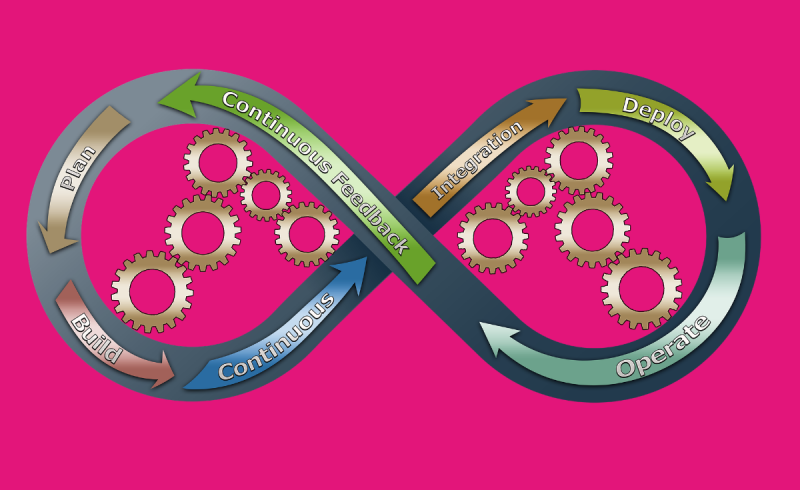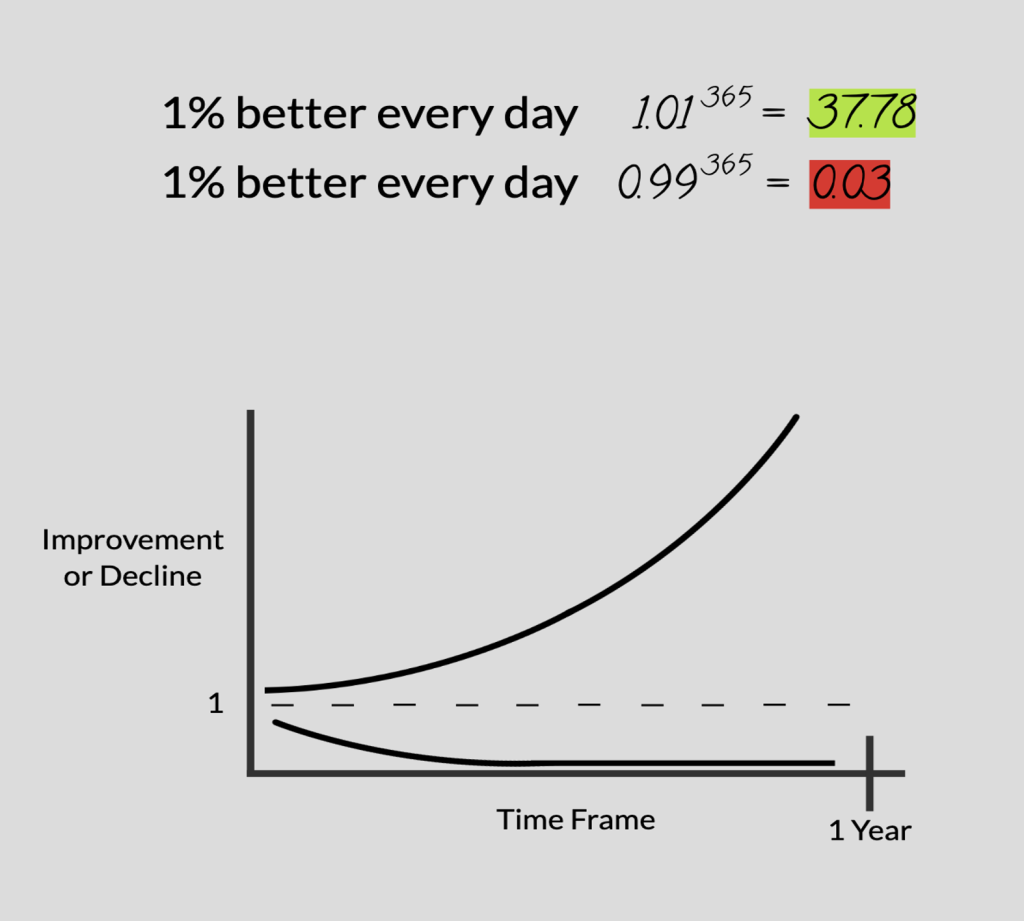
“achieving maximum productivity with minimum wasted effort or expense”. That is the Oxford Dictionary’s definition of ‘efficient’. To me, that’s quite reminiscent of being lazy; defined as “unwilling to work or use energy”.
Whether you’re unwilling to expend energy or simply strive to use the least amount possible, there’s a debate to be had that lazy people are often the best innovators. Why? Because they want to get the job done as quick as possible.
In this blog, we’ll be exploring that fine line between laziness and efficiency. More specifically, we’ll examine the concept of how ‘small hinges swing big doors’. How one can make seemingly insignificant changes, repeatedly, for significant gain.
Lets explore the aggregation of marginal gains.
Have you ever wondered how much progress you could make in a year, by making the most insignificant changes?
Probably not! But if you’re anything like me, then this is the type of question that pops into your mind at 1am on a work night, fiercely defying your circadian rhythm.
While I won’t make you answer my opening question, lets entertain something perhaps within our grasp – conceptually, at least.

While in this blog we’re not talking about doubling up your work, habits, or behaviours, we are looking at what could happen further downstream if you were to make incremental daily changes.
Author James Clear documented the now famous British Cycling team example of how these ‘atomic habits’ can have nuclear like consequences to your business, life or relationship.
See, Britain has had a less than reputable history when it comes to success in the professional cycling arena. Since 1908, team GB had never won the Tour de France race – cycling’s biggest attraction and had only won 1 Olympic gold medal.
It would seem then, that Great Britain were destined to fail. In fact, top bike manufacturers had refused to sell bikes to team GB as they were fearful of damaging brand reputation.
This all changed in 2003, upon hiring Dave Brailsford to take mantle as the new performance director. Dave made LOTS of changes, but Dave also made SMALL changes.
Reminiscent of the Kaizen methodology, Dave firmly believed in pursuing optimal growth and marginal improvements in every you do.
Initially, this manifested as small changes you might expect from a professional cycling team. From redesigning bike seats for greater comfort to rubbing alcohol on the tyres for more grip. Eventually, Dave looked outside of the traditional tasks a cyclist may engage with and went so far as to hire a surgeon to teach his team how to best clean their hands to reduce the chances of catching a cold.
A bit like an exploded diagram you look at when your washing machine has packed it in, Dave Brailsford took a comprehensive look at what his cyclists were doing on a regular basis in an attempt to make tiny optimisations in every single area.
Following the pursuit of marginal gains, Dave took the British Cycling team to victory in the 2008 Olympic games, winning an astounding 60% of the available gold medals. Team GB also went on to achieve the greatest run in Tour de France history, winning 5 times in 6 years from 2013 to 2018.
Now, If we circle back to the start of the blog, I asked you how much progress you could make in 1 year if you made small improvements every day. As it turns out, there is actually an answer.
If you were to make a 1% improvement in any area of your life, every day, for a year, you would end up 37.78 times better by the time you’re done. Conversely, if you got 1% worse every day for a year, you would decline to nearly zero.

Dear reader, I ask you now to take a look at your own workflow. Whether that’s personal or business, perhaps you want to lose weight, or you’re chasing more clients, I challenge you to chase the golden goose and become 37 times better than you currently are.
If I can offer some last remarks, I advise you breakdown your routine into the most granular ‘exploded view’ and pick one task in each area you can marginally improve on.
You’ll thank me in a year’s time.